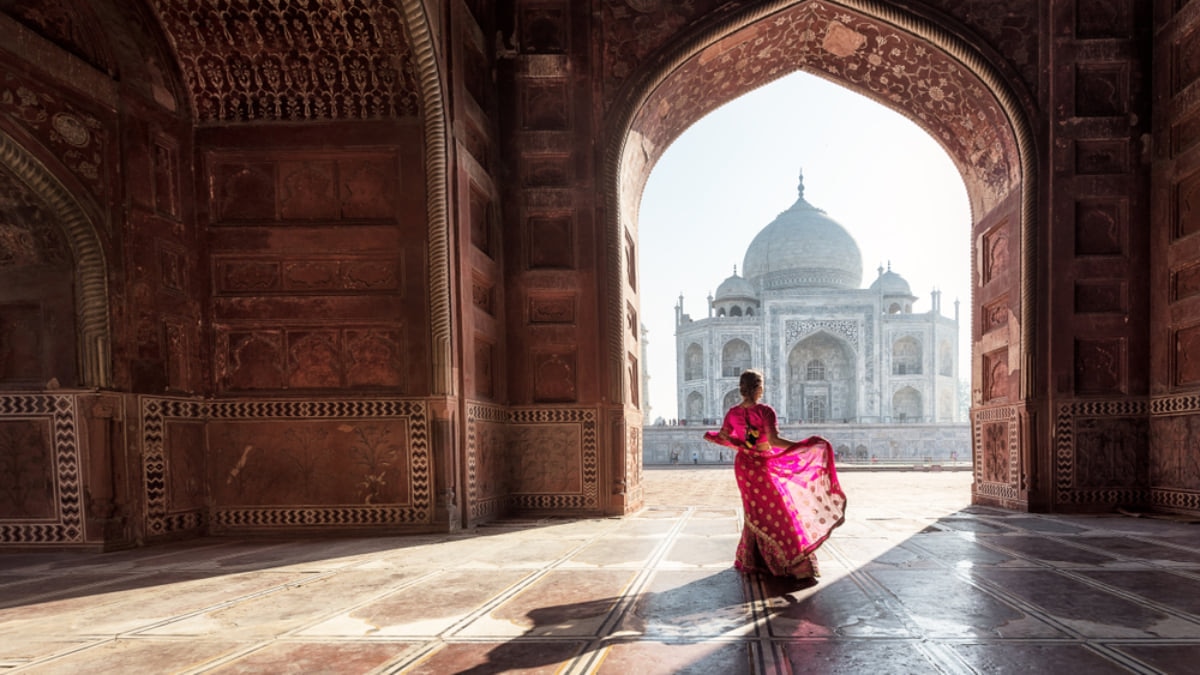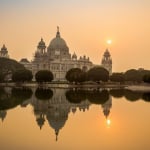India is a country of diverse traditions, religions, foods, and experiences. Most visitors, even if they have traveled through other parts of Asia, tend to have a bit of a culture shock when visiting India for the first time. Whether it is the crowds, the smells, the mix to modern and ancient architecture, or the existence of the rich and the poor side-by-side, having an open mind and a curious personality is vital if you want to enjoy your Indian vacation. Other than that, it's a matter of taking a few precautions, for a holiday in India is nothing like you've ever imagined.
table of contents
[x] close
Essential Travels Tips for the Perfect Holiday in India
Exploring India
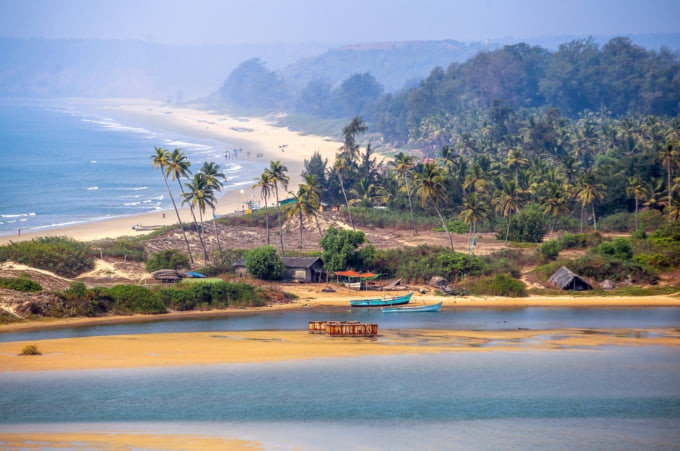
Photo by remzik/Shutterstock
India is a vast nation that promises fascinating sights and adventures for all ages. Due to its size, it's also nearly impossible to see the entire country, or even a majority of it, during one vacation. Thus, it is best to limit your travels within specific regions, depending on how long your vacation is.
Places like Kerala in the south-west and the golden triangle of Delhi-Agra-Jaipur in the north are popular week-long excursions. On the other hand, destinations such as Goa and Rishikesh might be small, but their beach and spiritual attraction respectively result in people staying there for months on end.
The trick is to plan your holiday in such a way that you get to explore a particular area extensively. Moreover, the real charm of India lies in its quaint little towns and villages, which are often only a few hour's drive outside metropolitan cities.
Weather
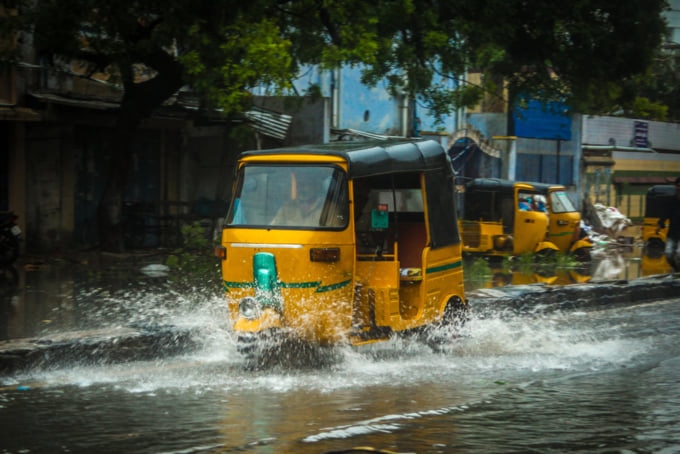
Photo by Anze Furlan/Shutterstock
The ideal time to visit India is from late October till the end of March, the winter season. In most parts of the country, it's typically not too cold or hot during the day, and therefore ideal for sightseeing. The summers, in contrast, are scorching and humid. Whereas the Monsoon season can be unpredictable with floods and heavy rain, making it difficult to travel even within big cities like Mumbai.
Medication
When visiting India for the first or tenth time, you need to carry some necessary medicines with you. The most important is for your stomach. The infamous "Delhi belly" is not just limited to the capital of the country as you can quickly end up with stomach cramps or worse, diarrhea, anywhere in India.
It's also good practice to carry a mosquito repellent in the form of an ointment or spray with you at all times. Mosquitoes are found throughout India and can be very bothersome.
The good thing about India is that many essential medications such as paracetamol and antibiotics are available over the counter at chemist shops. Nevertheless, the brands might be different, and it's best to carry the ones you typically use at home in your hand baggage.
Public Transport
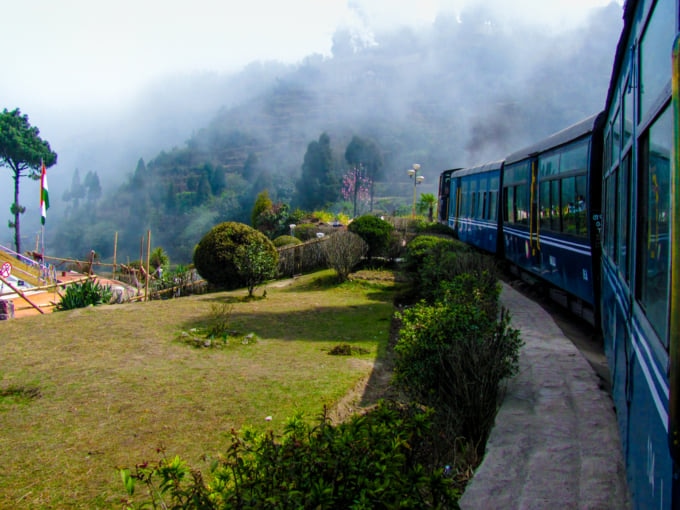
Photo by Amlan Mathur/Shutterstock
If you are a woman, avoid crowded public transport options such as trains and buses due to cases of unwanted touching, even if you are dressed appropriately.
When traveling on trains, you must take extra care of your luggage. It is not advisable to leave your bags unattended at any moment. For night travel, you'll notice that even Indians carry a lock and chain to safeguard their luggage against thieves.
If you're taking a taxi or a three-wheeler, which typically run without a meter, bargain on the fare beforehand.
In addition, when hiring a taxi from the airport or for point-to-point travel, stick with pre-paid options. You can also choose Uber and Ola, readily available in most cities.
Communication
India has extensive mobile coverage across most of its land. To keep your expenses low, pick a local SIM card upon arrival, available at domestic and International airports. Both Airtel and Reliance are excellent phone companies with widespread mobile networks and WIFI options.
Scam Alert

Photo by SAM1229/Shutterstock
As is the case anywhere in the world, due to a high influx of tourists, scams are aplenty in India. If something is too good to be true, it's best to avoid it. While Indians are very helpful and will go out of their way to accommodate foreigners, many do try to cheat them for an extra buck. From fake gems sold are precious stones and machine-made shawls as handmade to taxi drivers taking you to hotels or shops where they get a commission, you are likely to encounter something during the trip.
Food and Health
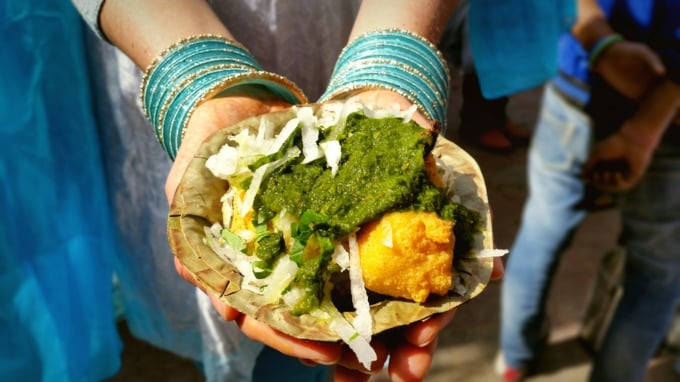
Photo by Ashish Abhishek Kumar/Shutterstock
Nothing spoils a good vacation like lousy health, and in India, unfortunately, there are several ways you can get sick.
For starters, pollution has been at its worst in this part of the world, and it's critical that you carry face masks when out and about in crowded and heavy traffic areas.
Now, India is particularly known for its street food. However, it is advised that you avoid it, especially if the place around the food stall is unhygienic. Many upmarket and clean restaurants and eateries serve street food in a more comfortable environment, and it's worth eating in such places instead especially if you have a weak stomach.
Unless you are in a five-star hotel, and even then, avoid ice. It's one of the main ways people get sick.
Similarly, stick with bottled water in all restaurants. But beware, many street stalls in smaller towns sell fake bottled water. Try to purchase only well-known brands and always check that the bottle is sealed adequately before buying it.
Toiletries
Toiletries are readily available in city shops, but two that you must carry with you are toilet paper and hand sanitizers. Indian bathrooms are not the cleanest everywhere, and you're unlikely to find toilet paper at roadside toilets.
Dress Code
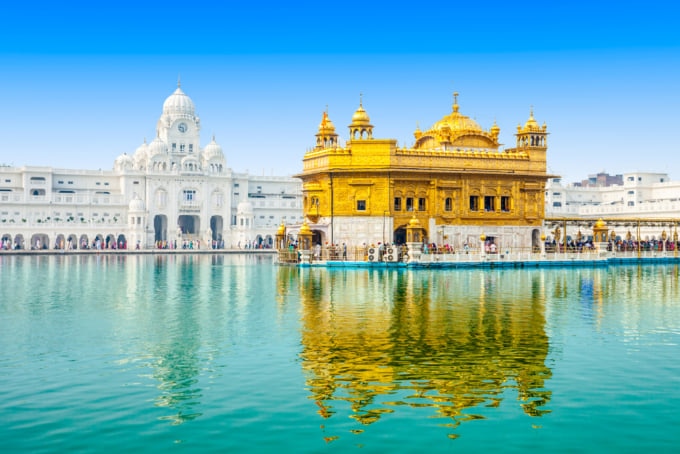
Photo by saiko3p/Shutterstock
India is an extremely religious and traditional country, you must dress appropriately when visiting any holy or sacred site.
Dressing more conservatively, especially for women, also helps avoid undue attention. The more revealing your clothing, as per Indian standards, the more eyes will be on you, and it can get uncomfortable.
Shoes are a big no-no in temples, but also when visiting an Indian house, make sure you don't sit with your shoes on couches or chairs.
Public Skills
Walking around India requires that you have excellent public skills. First and foremost, it never helps to lose your cool, so keep your temper in check.
In all probability, you will be photographed by random people on roads. Some might take photos from afar while others will come forward and ask for selfies with you. It's perfectly innocent, and by doing this, you might even make a few new friends.
If things do get too troublesome or street hawkers and beggars are irritating you too much, the best way to "escape" is by saying a polite "no thank you" and keep on moving. They might follow you for a while but will eventually give up.
Pickpocketing is another major issue, especially in tourist areas. Keep your wallets and purses well-guarded and wear your backpack on your chest when in such places.
On the Road
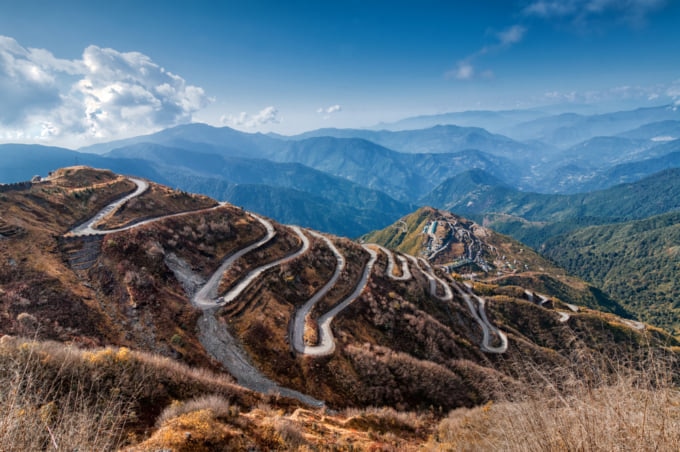
Photo by Rudra Narayan Mitra/Shutterstock
Driving in India takes specialized skills, and you pretty much have to forget everything you learned in driving school to survive Indian roads. People don't regularly follow traffic rules, and you must be aware of cars, scooters, cycles, and pedestrians coming in from all directions.
The same precautions hold when walking on roads in India. A zebra crossing doesn't mean much as drivers will continue even if they see people in the middle of the crossing. For your safety, always look on both sides of the road when crossing it, and then keep on looking till you are on the other side.
Essentials
Some of the essentials when taking a trip to India include having a good pair of shoes. Even when traveling by car, you will eventually end up walking, so proper footwear is quite beneficial.
At the same time, do leave your expensive shoes at home, as they are likely to get stolen when you take them off outside religious spots. Otherwise, make sure you leave them in your car or safely deposit them at one of the shoe-booths found outside spiritual places.
It's also an excellent idea to carry cash at all times. While cards are accepted, and there are ATMs machines in most cities, cash works best when visiting smaller towns or buying things off the street.
It is also recommended that you carry a few smaller denomination coins and notes of Indian rupees in your pockets. This helps get pestering beggars off your back.
Bargain
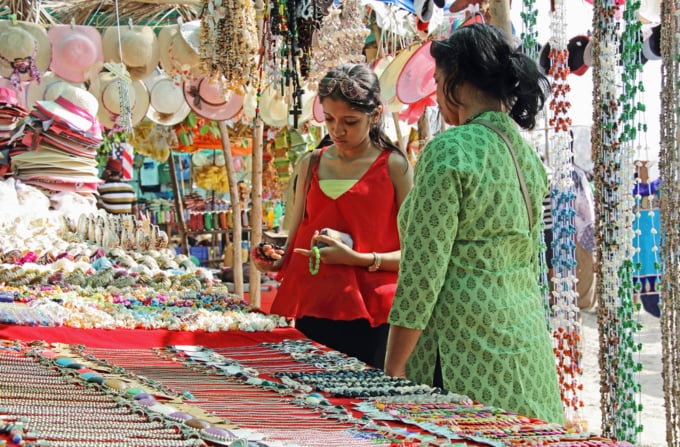
Photo by Matjoe/Shutterstock
Bargaining is an integral part of commercial life in India. Whether you're buying vegetables or a computer, there's always some bargaining to be done. The trick is to start with a price you feel is acceptable and then go up a little to hopefully come at an agreed amount.
Conclusion
India promises an explosion of cultures, unlike anything you've ever seen. It's generally a safe country, but still requires you to be slightly more cautious about everything and everyone. As a result, you should get travel insurance before visiting India. Still, the one thing you can bank on for sure is Indian hospitality. The locals are happy to help strangers and will go as far as treating them just like any other member of their family.





